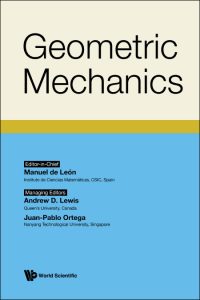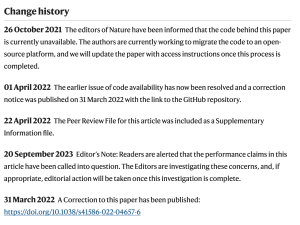Last week, an environmental journal published a paper on the use of renewable energy in cleaning up contaminated land. To read it, you would have to pay 40 euros. But you still wouldn’t know for sure who wrote it.
Ostensibly authored by researchers in China, “Revitalizing our earth: unleashing the power of green energy in soil remediation for a sustainable future” includes the extraneous phrase “Regenerate response” at the end of a methods section. For those unfamiliar, “Regenerate response” is a button in OpenAI’s ChatGPT that prompts the chatbot to rework an unsatisfactory answer.
“Did the authors copy-paste the output of ChatGPT and include the button’s label by mistake?” wondered Guillaume Cabanac, a professor of computer science at the University of Toulouse, in France, in a comment on PubPeer.
And, he added, “How come this meaningless wording survived proofreading by the coauthors, editors, referees, copy editors, and typesetters?”
Continue reading Signs of undeclared ChatGPT use in papers mounting








